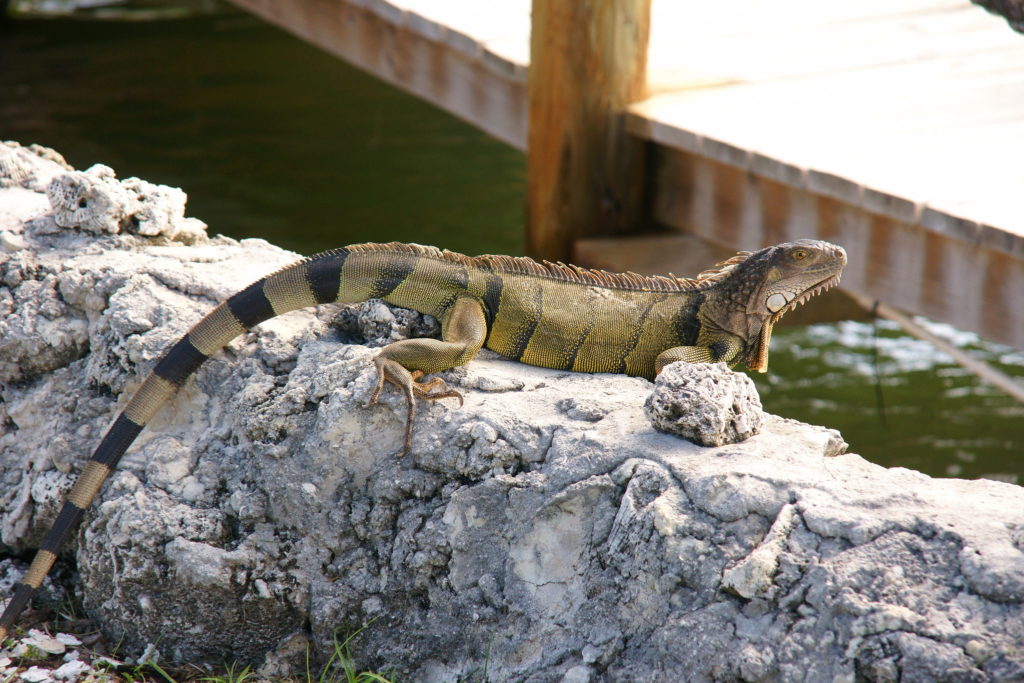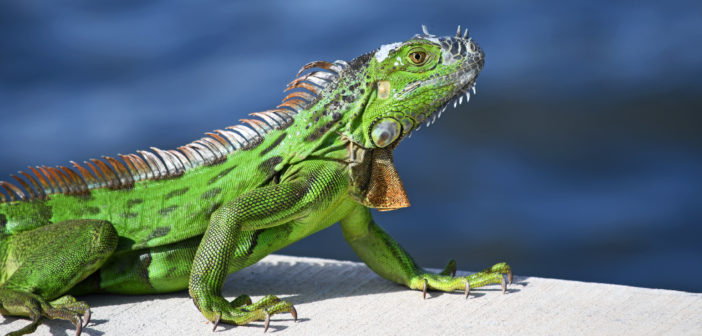The Florida Fish and Wildlife Conservation Commission (FWC) recently published a statement urging homeowners to kill iguanas on their property “whenever possible.” This statement is part of a broader extermination program that is calling for the mass killing of iguanas in unthinkably cruel ways.
In 2018, the FWC gave $63,000 of taxpayer money to the University of Florida so it could develop new, innovative ways of terrorizing and tormenting iguanas. University “researchers” stalked the animals at night and killed hundreds of them by slamming them into hard surfaces, such as trucks and boats, or smashing in their skulls. Shockingly, The FWC has the nerve to describe all of this as “humane.” This harmful order is a far cry from “conservation” and the FWC must be held accountable. Please join us in urging the FWC to stop inciting and financially supporting animal cruelty!
Iguanas are not native to Florida and became established in the state through the cruel exotic animal trade, with many companion iguanas subsequently abandoned and released in the wild. However, the damage they cause is minimal and limited to trivial things like eating garden plants and defecating on sidewalks. Even this can be easily prevented with humane deterrents such as spraying garlic or pepper spray in affected areas and growing plant species, like milkweed, which they find off-putting. Hanging up compact disks can also repel them since iguanas get irritated by the light which reflects off the disks.

An iguana in the Florida Keys. Image credit Steve Harwood, CC BY-SA 3.0.
Unlike the presence of iguanas, the vigilante killing encouraged by the FWC has proven to be a public safety risk. A few days after the FWC released its statement, a man shooting at iguanas with a pellet gun hit a maintenance worker, who, according to witnesses, sustained injuries to his leg.
The FWC’s extermination programs are unnecessary, cruel, dangerous and a waste of resources which should be going toward the conservation of Florida’s endangered species. The FWC should immediately retract its reckless statement and promote only humane alternatives to deter iguanas.
What You Can Do
1) Please call Eric Sutton, the FWC’s executive director, at 850-487-3796. Calling is one of the most effective actions you can take for animals. Here’s an example of what you can say:
“My name is ______ and I’m calling to express my disappointment regarding a statement the Fish and Wildlife Conservation Commission recently issued to encourage people to kill iguanas on their property. There are many humane alternatives that can be used to prevent the negligible damage iguanas cause, such as administering garlic spray or planting milkweed. In the name of true conservation, the Commission has the duty to promote these alternatives instead of inciting animal cruelty and wasting taxpayer money on iguana slaughter programs.”
2) After you call, please fill out the form on the right hand side of this page. Doing so will send our letter to FWC Chairman Robert A. Spottswood and the following key executives: Robert A. Spottswood, Chair; Eric Sutton, Executive Director; Thomas Eason, Assistant Executive Director; Jennifer Fitzwater, Chief of Staff; David Rathke, Chief Operating Officer; and Charlotte Jerrett, Chief Financial Officer.
Featured image: an iguana seen in Fort Lauderdale, Florida. Image credit pontla, CC BY-SA 3.0.






1 Comment
Banning the exotic pet trade, which brought iguanas to Florida in the first place, would also be a humane and much more effective means of combating the spread of invasive species.